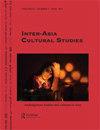Carnivalesque communities: Thai TV dramas and the Chinese censorship
IF 0.4
4区 社会学
Q4 ANTHROPOLOGY
引用次数: 0
Abstract
ABSTRACTThis paper explores how Thai television dramas, which have been a staple of the nation’s TV landscape for many decades, have made new inroads in mainland China. Despite intense censorship by the Chinese state, China’s extremely large market enticed the Thai media industry. Control over what citizens can see on websites has also created an obstacle for which fan communities must find ways to bypass. The paper outlines both the historical process of Thai TV dramas’ inroads into the Chinese market and the different tactics Thai media companies and Chinese fan communities employ to circumvent Chinese state censorship. Based on interviews with various actors, including Thai TV media personnel, Chinese fansub groups, and fan communities, the paper argues that Chinese fan culture surrounding Thai TV series is a mixture of a subversive community that rebels against state control, as well as a constantly negotiating subculture that adopts various practices to break out from state censorship. Chinese youth today show that consumption is a site of contestation, rather than a site of control and manipulation.KEYWORDS: Thai TV dramasChinese censorshipfan-subtitleaudience receptionThai boys’ love Additional informationFundingThe author would like to thank Thailand Science Research and Innovation for funding this project.Notes on contributorsAmporn JirattikornAmporn Jirattikorn is an Associate Professor at the Department of Social Science and Development at Chiang Mai University, Thailand. She received her PhD in Anthropology from the University of Texas, Austin in 2008. Amporn’s research interests are in two areas of media flows and mobility of people across national boundaries. One area involves cross-border flows of Thai television series to Asian countries and the audience reception of Thai popular culture. The other area focuses particularly on the movement of Shan migrants from Myanmar into Thailand. Her recent publication has centred on the consumption of Thai TV dramas outside Thailand.狂欢社区:泰国电视剧和中国审查制度
摘要本文探讨了泰国电视剧是如何在中国大陆取得新进展的。泰国电视剧几十年来一直是泰国电视剧的主要组成部分。尽管中国政府实行严格的审查制度,但中国巨大的市场还是吸引了泰国媒体行业。对公民在网站上可以看到的内容的控制也造成了一个障碍,粉丝社区必须想办法绕过这个障碍。本文概述了泰国电视剧进入中国市场的历史过程,以及泰国媒体公司和中国粉丝群体为规避中国国家审查而采取的不同策略。基于对包括泰国电视媒体人员、中国粉丝团体和粉丝社区在内的各种演员的采访,本文认为,围绕泰国电视剧的中国粉丝文化是一种混合体,它是一种反抗国家控制的颠覆性社区,也是一种不断谈判的亚文化,采用各种做法来突破国家审查。今天的中国年轻人表明,消费是一个争论的场所,而不是一个控制和操纵的场所。关键词:泰国电视剧;中国审查;粉丝;作者简介samporn Jirattikorn是泰国清迈大学社会科学与发展系副教授。她于2008年获得德克萨斯大学奥斯汀分校人类学博士学位。Amporn的研究兴趣集中在两个领域:媒体流动和跨国界人员流动。其中一个领域涉及泰国电视剧向亚洲国家的跨境流动和泰国流行文化的受众接受。另一个领域特别侧重于掸族移民从缅甸进入泰国的流动。她最近的出版物集中在泰国以外的泰国电视剧消费上。
本文章由计算机程序翻译,如有差异,请以英文原文为准。
求助全文
约1分钟内获得全文
求助全文
来源期刊

Inter-Asia Cultural Studies
Multiple-
CiteScore
0.90
自引率
20.00%
发文量
22
期刊介绍:
The cultural question is among the most important yet difficult subjects facing inter-Asia today. Throughout the 20th century, worldwide competition over capital, colonial history, and the Cold War has jeopardized interactions among cultures. Globalization of technology, regionalization of economy and the end of the Cold War have opened up a unique opportunity for cultural exchanges to take place. In response to global cultural changes, cultural studies has emerged internationally as an energetic field of scholarship. Inter-Asia Cultural Studies gives a long overdue voice, throughout the global intellectual community, to those concerned with inter-Asia processes.
 求助内容:
求助内容: 应助结果提醒方式:
应助结果提醒方式:


